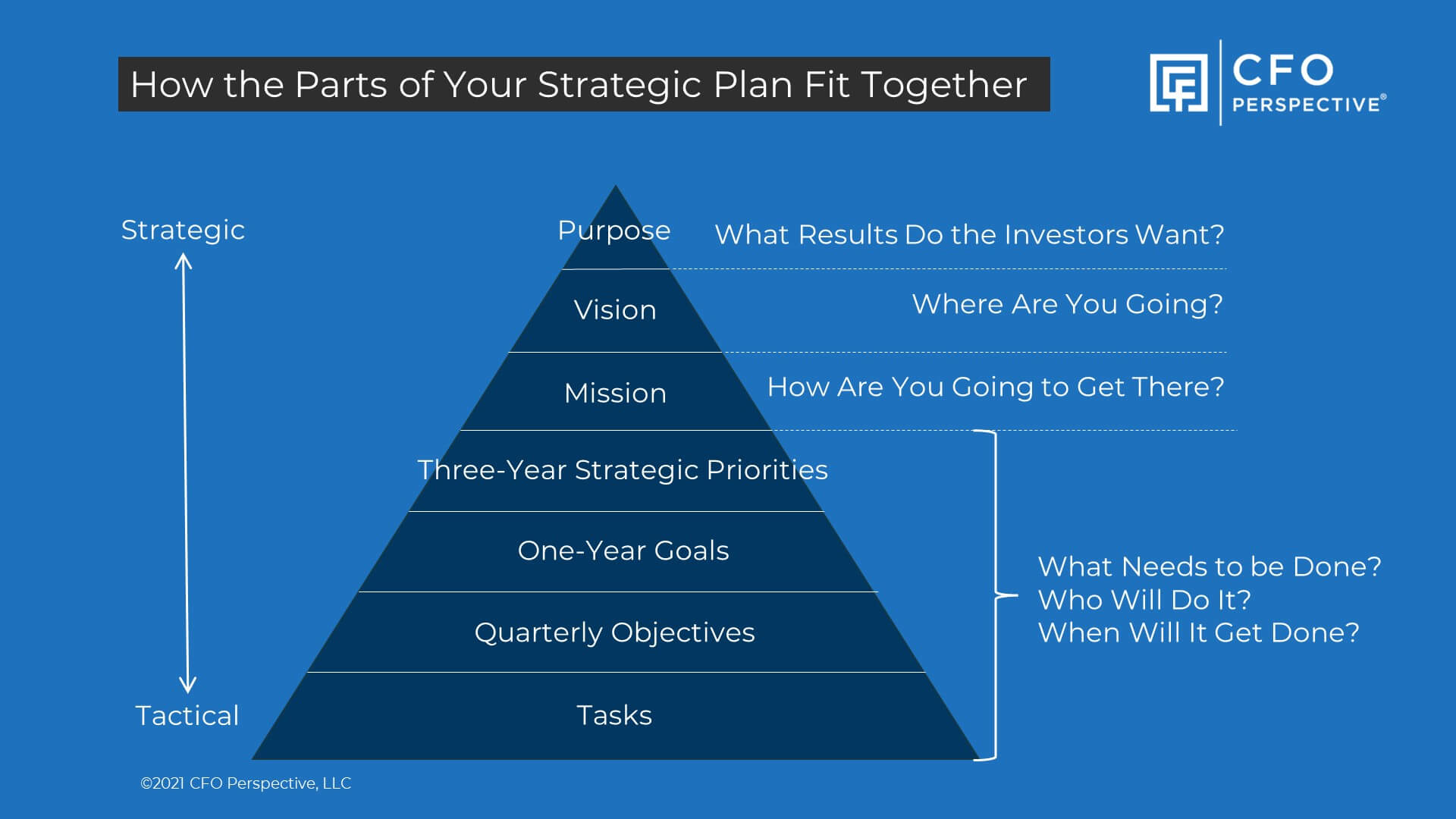When you are clear on your critical success factors, you know what your company must do. You know where you are going and how you will get there. Many companies jump past identifying their critical success factors. They then flounder in later steps of strategic planning.
The link between critical success factors and strategic planning
Let’s start with the key performance indicators (KPIs) of your company and work back to the critical success factors assumed by them.
How do you decide which metrics are so important that they become your key performance indicators?
It all starts with the purpose of your company. The purpose of a company is to provide to owners what they value. It does this by providing value to customers and employees. You must give value to get value.
How a company achieves its purpose is determined through a strategic planning process. In your strategic planning process, your KPIs are most directly determined by your critical success factors.
What are critical success factors?
Critical success factors are the most important things a company must do or have to achieve its purpose.
An example is high customer satisfaction. For a manufacturer, it might be maintaining a high level of quality. For a service company, it may mean billing out a certain number of hours. Growing companies may need to hire enough staff to handle future volumes.
Critical success factors say “what” needs to be achieved. KPIs are the specific measurement of a critical success factor to achieve success. They clarify “how much.”
Critical success factors are the most important things a company must do or have to achieve its purpose.
Let’s match the example critical success factors with a potential metric. The metric for high customer satisfaction would be 4.8 stars or higher on a 5-star customer survey scale. High quality could mean less than a .10% defect rate. The service company would want staff to bill out 100 hours of their consulting time each month. Finally, the growing company would hire 15 people.
Working backward from your KPIs
The link between critical success factors and KPIs may seem obvious to you. Isn’t it obvious that you have to decide what’s important before you decide how to measure it?
The problem is that metrics usually are picked completely apart from strategy. Industry benchmarks are picked as a KPI without linking them to that specific company’s unique strategy. KPIs may be picked from a rule of thumb, long-held company metrics from an old strategy, or a list of metrics that someone pulled from the internet.
Take any of your metrics and ask “why” you need to achieve that target. Answer with a sentence that starts with “so that.” Your answers will lead toward your critical success factors and strategy if they are aligned with them. They lead to a dead-end if they don’t because there will be no compelling or critical answer for the metric.

For example, why do we want to receive an average customer rating of 4.8 or higher? So that we maintain high customer satisfaction. Why do we want that? So that we can continue to charge a premium price. Why do we want that? To increase our net income and return to owners.
Why businesses wander without critical success factors
Metrics picked without a link to strategy are not bad metrics. They just don’t guarantee that you’re achieving your business’s particular purpose or strategy.
As Yogi Berra said, “You’ve got to be very careful if you don’t know where you are going because you might not get there.”
Companies that pick metrics without building from a clear strategy are like Alice in the book Alice in Wonderland. Alice comes across a Cheshire cat and asks, “Would you tell me, please, which way I ought to go from here?” The Cheshire Cat replies, “That depends a good deal on where you want to get to.” Alice responds, “I don’t much care where.” To which the cat replies, “Then it doesn’t much matter which way you go.”
For more info, check out these topics pages:

